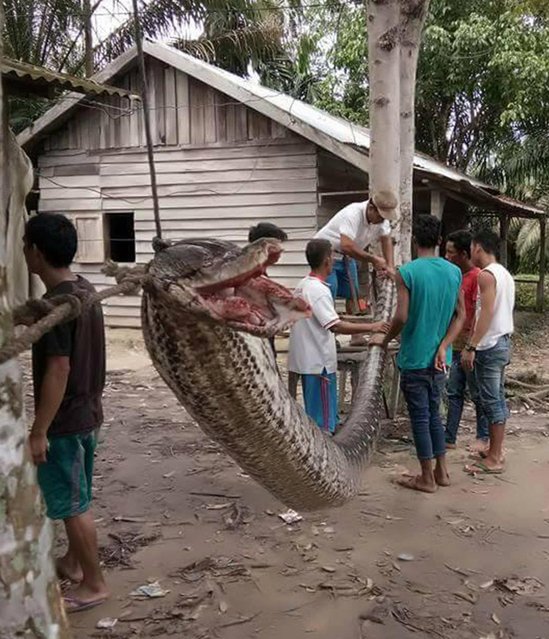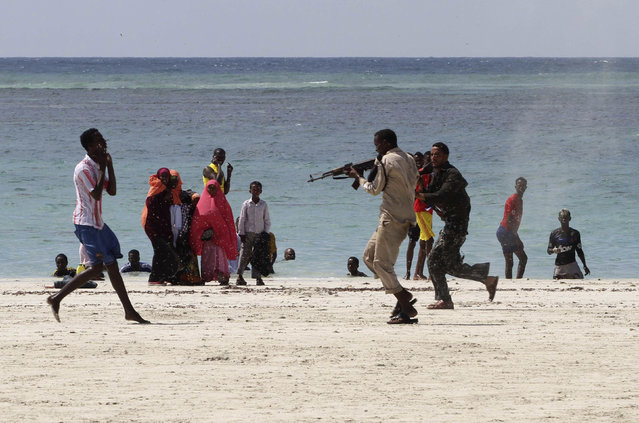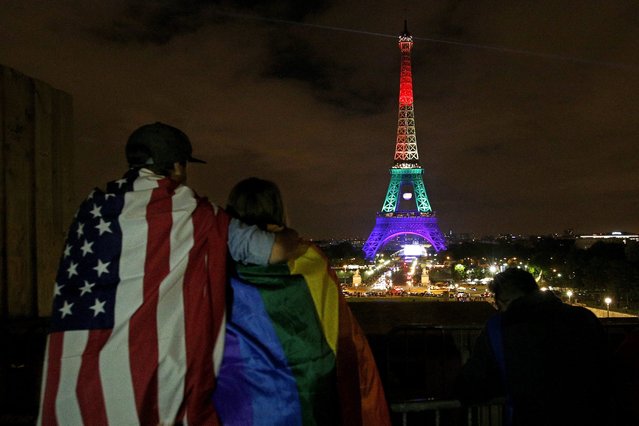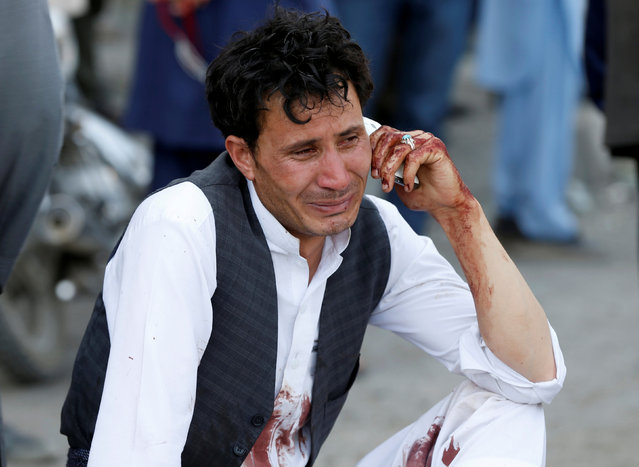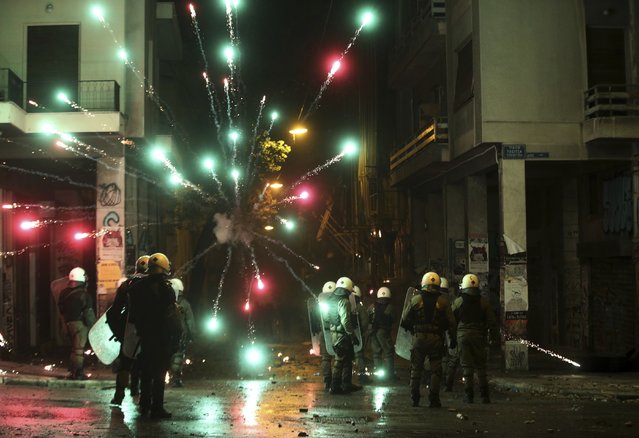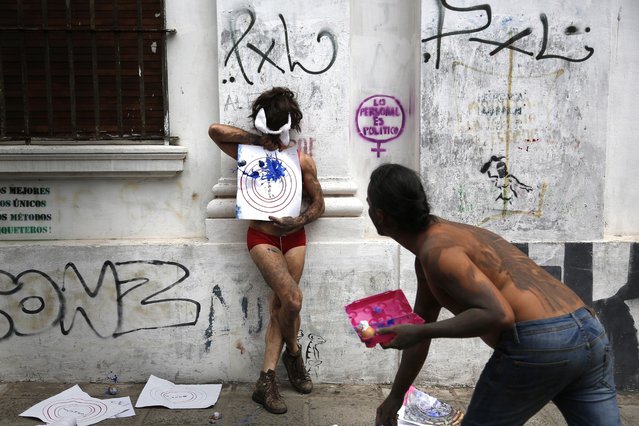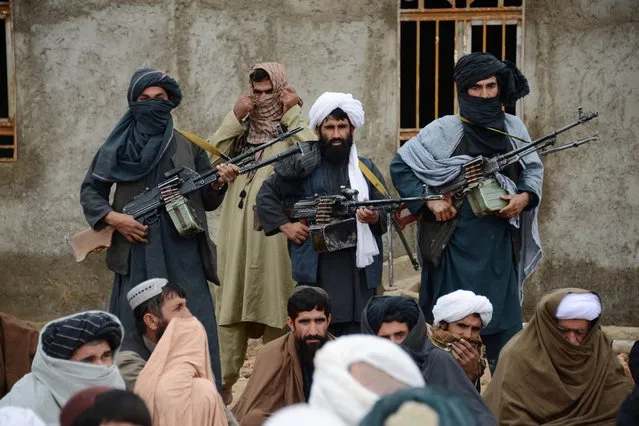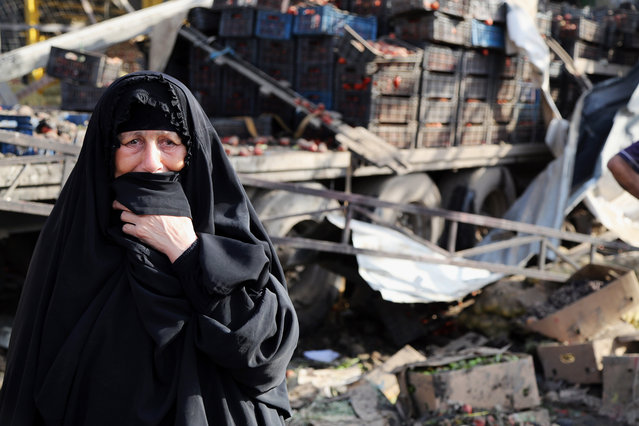
An Iraqi woman grieves at the scene of a bomb attack in Jameela market in the Iraqi capital's crowded Sadr City neighborhood Baghdad, Iraq, Thursday, August 13, 2015. A massive truck bomb ripped through a popular Baghdad food market in a predominantly Shiite neighborhood in the early morning hours on Thursday, killing dozens of people, police officials said. (Photo by Karim Kadim/AP Photo)
14 Aug 2015 13:21:00,post received
0 comments

